To run Pi-Apps
- From the start menu: Accessories -> Pi-Apps
- Use the terminal command:
pi-apps - Run Pi-Apps from its directory:
~/pi-apps/gui
Pi-Apps is very easy to use.
-
This is the main window.
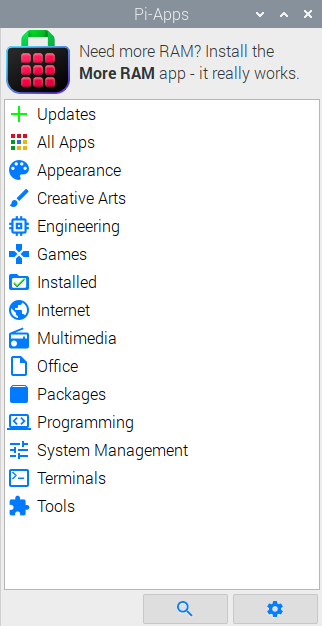
 Search for apps.
Search for apps. Open pi-apps settings.
Open pi-apps settings.- Click on a category to open it.
-
Opening a category will reveal a list of apps:
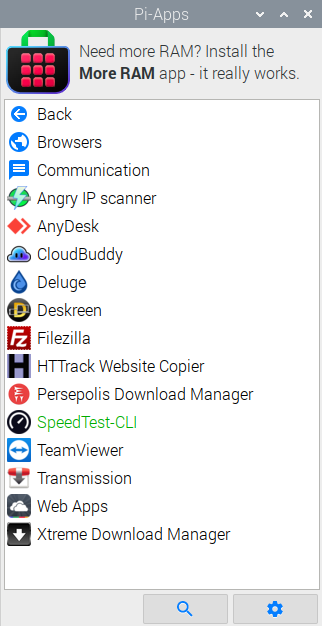
 Go back to the main list of categories.
Go back to the main list of categories.- Click on an App name to see its details (see details window below)
-
On the right is the app details window:
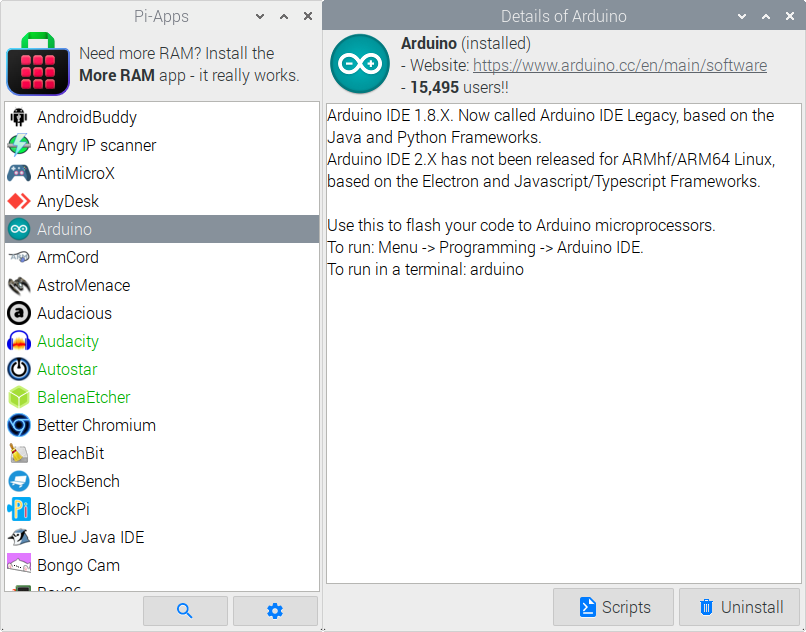
 View the shell-scripts responsible for installing or uninstalling the selected app.
View the shell-scripts responsible for installing or uninstalling the selected app. Modify the app's description, icons, or scripts. (This button is hidden unless you enable it in Settings)
Modify the app's description, icons, or scripts. (This button is hidden unless you enable it in Settings) Install the selected app.
Install the selected app. Uninstall the selected app.
Uninstall the selected app.
-
If you install/uninstall an app, you will see the progress window, keep installing/uninstalling apps to add them to the queue:
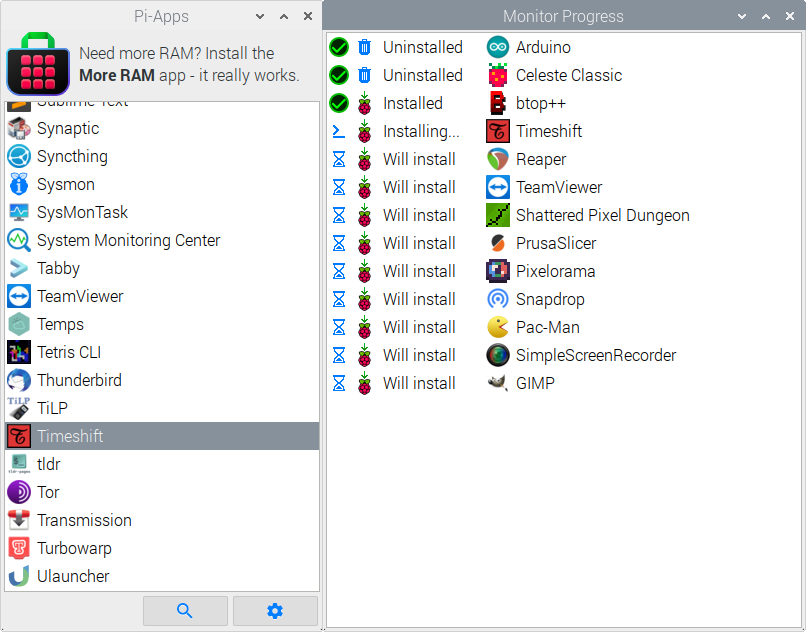
-
Pi-Apps Settings can be configured by launching Menu -> Preferences -> Pi-Apps Settings.
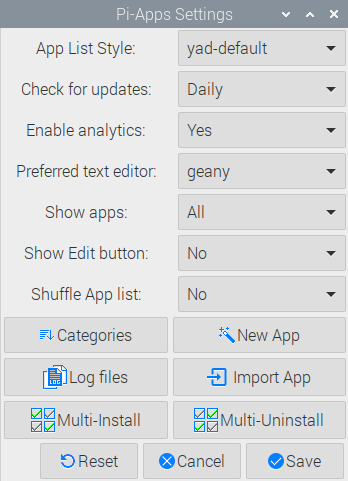
In addition to changeable settings, this window also gives access to these tools: Does that one app seem to be in the wrong category? With this button, you can change it.
Does that one app seem to be in the wrong category? With this button, you can change it. Create a new app with a wizard-style set of dialogs. We recommend reading the tutorial.
Create a new app with a wizard-style set of dialogs. We recommend reading the tutorial. View the past weeks-worth of installation logs. This is useful if you ever encounter an app that won't install and want to see the terminal output after you closed the terminal.
View the past weeks-worth of installation logs. This is useful if you ever encounter an app that won't install and want to see the terminal output after you closed the terminal. This allows you to easily import a 3rd-party app from elsewhere. It helps Pi-Apps developers test upcoming apps for reliability on a variety of systems.
This allows you to easily import a 3rd-party app from elsewhere. It helps Pi-Apps developers test upcoming apps for reliability on a variety of systems.